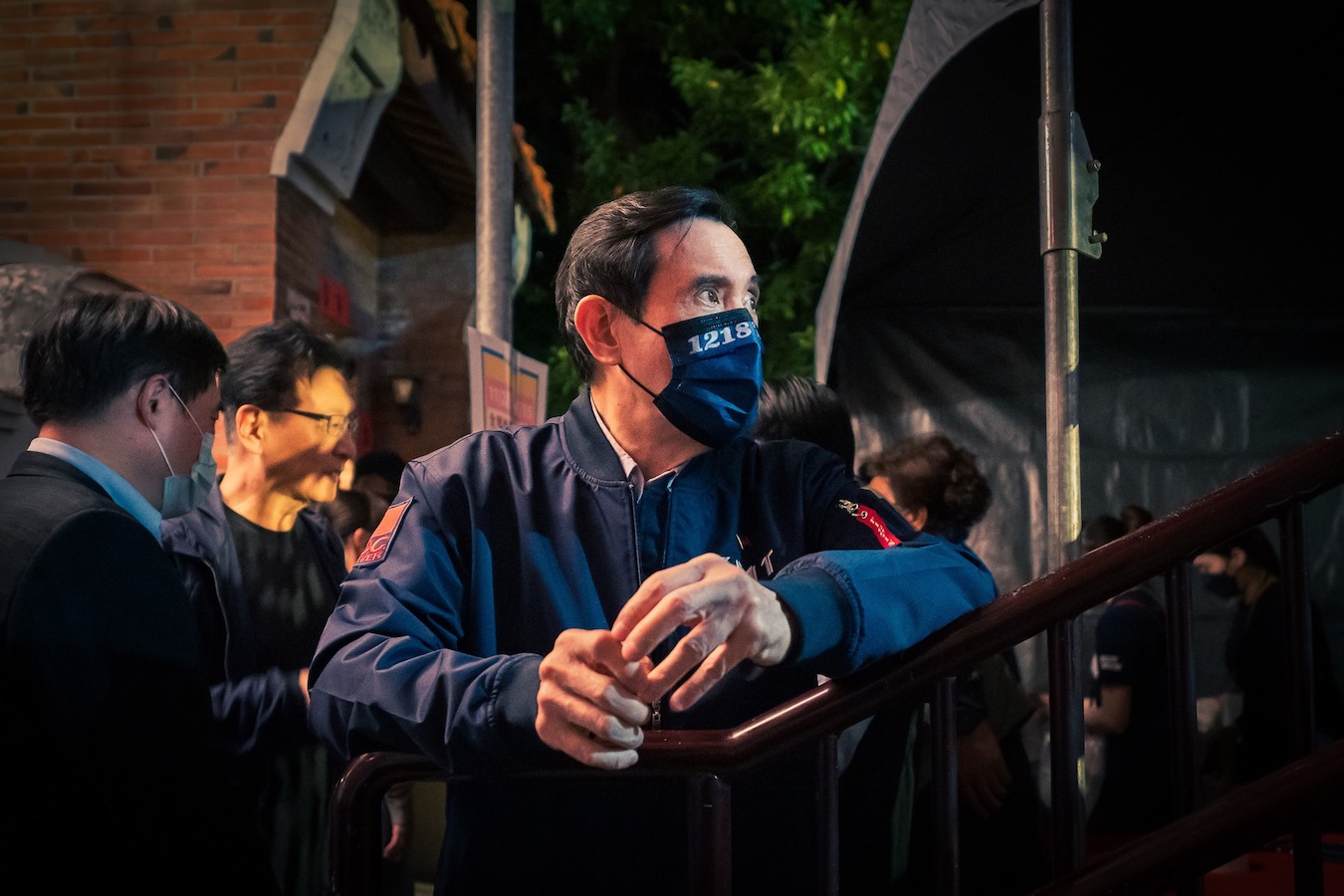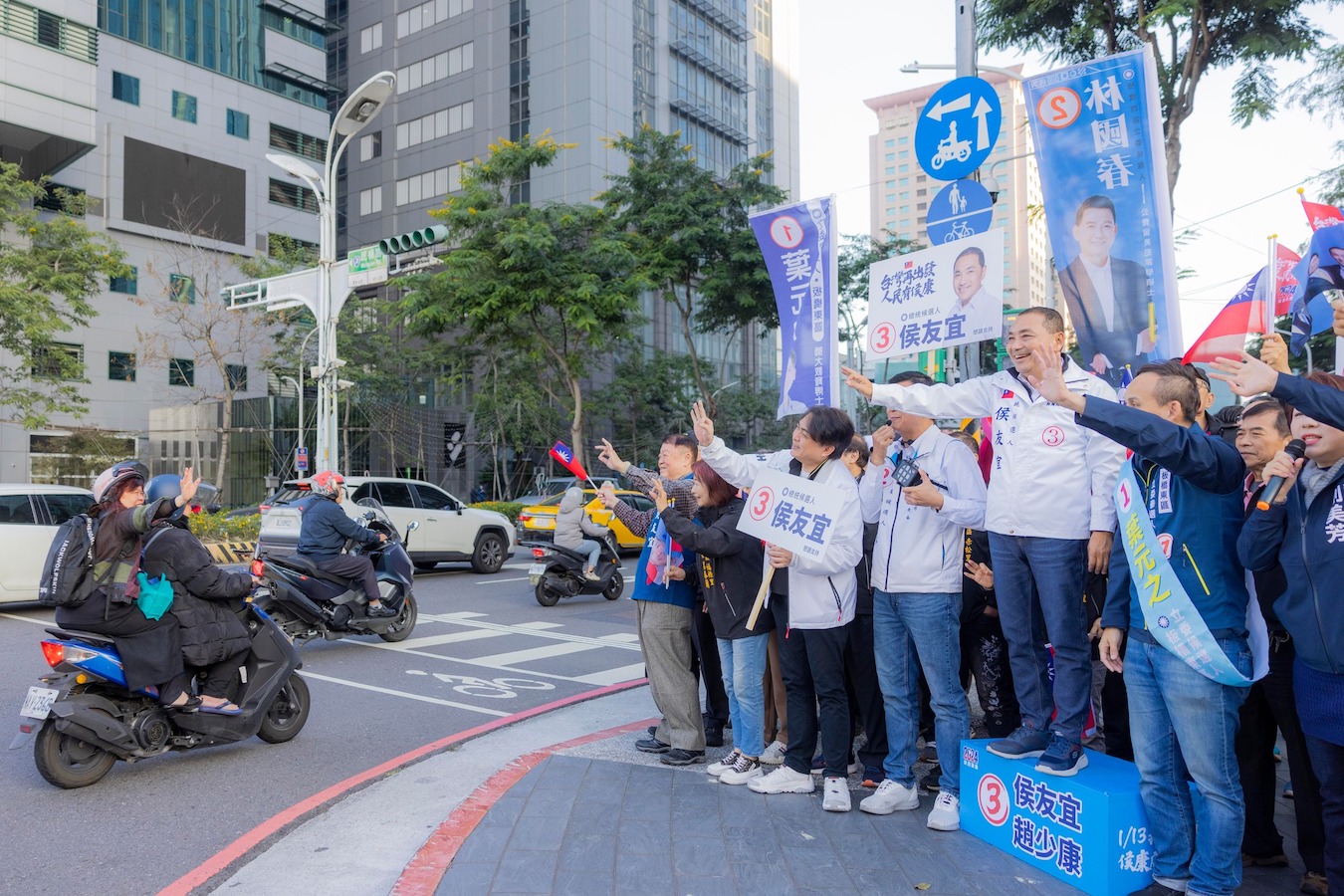by Brian Hioe
語言:
English
Photo Credit: Hou You-yi/Facebook
ECONOMIC POLICY has again become an object of contestation between the KMT and DPP ahead of the upcoming elections.
The KMT has returned to emphasizing that its vision for Taiwan’s future involves restoring economic links with China. This is one of the significant reasons as to why the party has again called for the restart of talks over the Cross-Strait Service Trade Agreement (CSSTA), the trade agreement formulated under the Ma administration that would allow for Chinese investment in Taiwan’s service sector industry. Likewise, the KMT calls for encouraging Chinese tourists to return to Taiwan–something that the Chinese government would likely only allow if the KMT took power again–as well as Chinese students.
Opposition against the CSSTA led to the outbreak of the 2014 Sunflower Movement, one of the largest social movements in Taiwanese history. Nevertheless, that the KMT has returned to advocating for the CSSTA likely reflects to what extent the Ma administration has now come to be seen as a high point for the KMT, as the last time that the KMT held power.
 Former president Ma Ying-jeou. Photo credit: Ma Ying-jeou/Facebook
Former president Ma Ying-jeou. Photo credit: Ma Ying-jeou/Facebook
This occurs concurrently with the return of Ma Ying-jeou himself to public life, with Ma exercising significant influence in the party at present. It is thought that Ma’s role in the party is a contributing factor as to why the party has reemphasized the 1992 Consensus at present, with Ma likely viewing the 1992 Consensus–and CSSTA as part of his political legacy. Nevertheless, the 1992 Consensus has increasingly come to be seen as a toxic brand in Taiwan, hence why successive KMT chairs such as Johnny Chiang and Eric Chu would consider dropping it before pressure from Ma convinced them otherwise.
One can point to a structural parallel between the KMT and CCP regarding how the CCP, too, has been unable to advance beyond formulas such as One Country, Two Systems in appeals to Taiwan. There is sufficient backlash against One Country, Two Systems that KMT politicians now regularly reiterate that they oppose it, as well as Taiwanese independence, and have sought to distinguish the 1992 Consensus that they support from One Country, Two Systems–especially after the outbreak of the 2019 protests in Hong Kong. Nevertheless, the CCP still indicated that One Country, Two Systems was its preferred framework for unification in the 2020 presidential election cycle.
To this extent, the DPP and KMT continue to offer different frameworks for Taiwan’s economic future. But as the KMT has increasingly leaned into US-skeptic narratives, including alleging that arms sales to Taiwan are of useless military equipment that, in fact, endanger Taiwan, this has also led to questioning of economic agreements signed with the US and multilateral FTAs more broadly. Specifically, the KMT has leaned into the lack of public knowledge about how trade agreements work to suggest that Taiwan would only be able to join agreements such as the Japan-led CPTPP if it also ratified China-led trade agreements such as RCEP.
Both have also sought to attack each other over migrant work. The DPP has focused fire on calls by the KMT to allow Chinese students to take up work in Taiwan, along with pushing for a return of Chinese tourists, suggesting that this shows disregard by the KMT for Taiwanese young people at a time of low salaries, long working hours, and expensive housing. In response, the KMT has attacked plans to allow Indian migrant workers to enter Taiwan, as the fifth major country that is a source of migrant workers, suggesting that this is what actually reflects disregard for Taiwanese workers.
 KMT presidential candidate Hou You-yi while campaigning (center-right). Photo credit: Hou You-yi/Facebook
KMT presidential candidate Hou You-yi while campaigning (center-right). Photo credit: Hou You-yi/Facebook
This takes place after a wave of racism against news reports on plans to allow for Indian migrant workers to enter Taiwan. Ironically, under both proposals, Chinese and Indian workers would likely be taking on the work that Taiwanese themselves do not want. Correspondingly, one notes that the KMT has sometimes sought to leverage on what it frames as inherent discrimination by the DPP against Chinese, something it capitalizes on to appeal to Chinese nationals with ROC nationality who can vote in Taiwan, such as Chinese spouses.
Yet it may not be surprising that the DPP and KMT offer alternative economic visions for Taiwan, as reflects their differing views of cross-strait relations. The KMT in particular has sought to suggest that the DPP provokes China, leading to events such as China suspending provisions of the Economic Cooperation Framework Agreement (ECFA), while the DPP has criticized this as a form of victim-blaming, seeing as it is China threatening Taiwan rather than the DPP. The KMT, too, has sought to connect the issue of low salaries in Taiwan to the China issue, suggesting that salaries would rise if the DPP had not blocked relevant provisions of ECFA. As such, even as much news reporting has discussed a split between domestic issues and cross-strait issues in the election, both in fact are interlinked.

